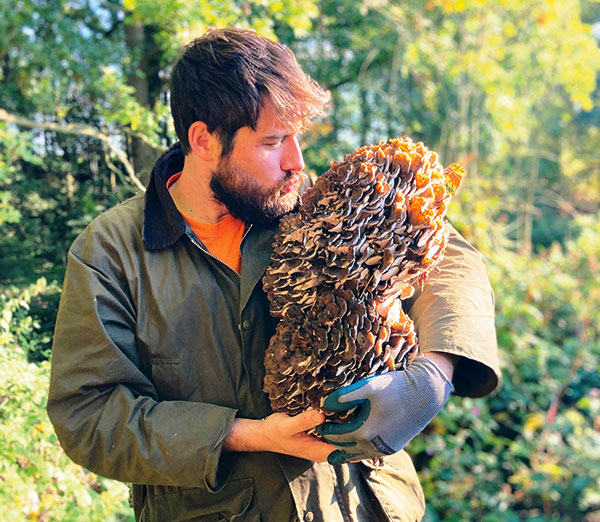Winter dormancy affects plants and animals alike, and humans are no exception. Many choose to hibernate in their caves, but as a forager, I choose not to hide away when the days get colder and shorter.
Instead, I opt to embrace the seasons and all the wonderful variety of wild food available across the whole year, noticing changes in nature on an almost daily basis.
Allotmenteers are programmed with that same acute sense, able to spot the tiniest green growth in late winter as nature limbers up on the starting line before the pistol fires at the start of spring to set the growing year off. Excitement builds as seed catalogues convert to seed packets and windowsills start to fill up with trays and pots, each of them hopeful little containers of coiled potential.
Imagine then, what it is like having that same anticipation every time you step out into the great outdoors. When your local woodland is both your seed tray and supermarket, the giddiness for growth can be exhausting. Foragers are always on the lookout for signs that conditions are right for a species to have kick-started the next stage of growth.
Wild food is hyper-seasonal, best imagined as an annual merry-go-round. Hold out your hands to grab what you can, but when it’s gone past, you have to wait until next year. There’s no great polytunnel to grow all of our wild spaces in, so we are entirely at the mercy of the elements.
What this means is that there are ‘bad’ and ‘good’ years for certain plants and fungi, as unseasonable weather patterns disrupt or accelerate growth. Take the glorious Mirabelle plum, for example. With flesh sweeter and juicier than any fruit you can buy in the shops, it should be at the top of any forager’s list to go hunting for in the height of summer.

When it’s a good year, it tends to be a bumper crop and many a freezer shelf has been overloaded with bags of this ambrosial hedgerow fruit. However, this is all too infrequent, and the responsibility for this sits squarely with unpredictable seasons.
Plum varieties, such as the Mirabelle, rely on their flowers being pollinated after the last chance of frost, as their tender petals cannot survive the freeze-thaw process and hence the fruit does not set.
In a world that is seeing so many freak weather incidents (nowadays ‘since records began’ is all too common a phrase), it is not surprising to get a frost as late as May in the UK, knackering all tender growth for foragers and gardeners alike.
Climate change is undeniably a factor in these extreme weather events. Though I am no scientist, there is a palpable change across our traditionally recognised seasons. From second springs in September, to being snowed on in July, there is a school of thought to suggest that our seasons are becoming less defined.
Longer winters, excessively damp summers, and extreme mercury readings mean the predictability of the seasons, which makes foraging such a rewarding way to base one’s diet, is corroding.
So, as foodies, how can we help? Well, there is one way to help battle climate change and curb the changes to our seasons, and that is to eat more seasonally. If you eat blackberries in December, the energy and subsequent emissions required to grow that fruit is stark.
Heated greenhouses, air miles and deforestation impact enormously on the environment, so any food grown naturally, wild or otherwise, is your first step to saving and savouring our seasons. And what better way to do that than putting your wellies on when the rest of the population is hibernating?
This column was originally published in the spring print edition of Wicked Leeks. You can read the full magazine for free on Issuu.












0 Comments